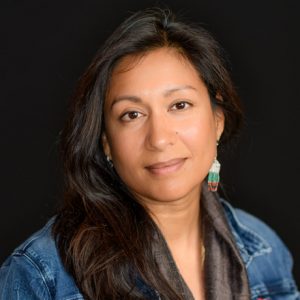The Santa Barbara Foundation’s Inclusive Collaboration Spans Across the State

Many of us may have experienced the realization, upon leaving the doctor’s office or the pharmacy, that we didn’t fully understand what we were just told about our own health. But now imagine that the doctor or pharmacist didn’t even speak your language. Maybe the receptionist speaks your language and can translate. While a translator can help, non-verbal cues and cultural context are also important in highly personal communication. This is why Community Health Workers and Promotores (CHW/Ps) are taking center stage as California seeks to improve public health by reducing language and culture barriers.
Characterized by “servicio de corazon” (service from the heart), CHW/Ps are central to health equity because they are trusted community members with knowledge of meaningful information and resources available to their neighbors in need. They share the ethnicity, language, cultural traditions, status, and life experiences of the communities they serve. This unique connection to the community made CHW/Ps visibly effective in supporting the COVID-19 response, and, according to Santa Barbara Foundation’s Vice President of Programs, Rubayi Estes, the question arose, “How can we support these individuals, leverage this positive force and scale it up for greater reach and success?” Currently, organizations across the region, state, and nation do not have a standard practice in engaging CHW/Ps, they vary in their titles, roles, wages, responsibilities, employment status, and job security.

The State of California asked the same question, and now the Santa Barbara Foundation and Santa Barbara County’s Public Health Department are overseeing the Central Coast CHW/Promotores Capacity-Building Collaborative, a tri-county effort with Ventura County (VC), Santa Barbara County (SBC), and San Luis Obispo County (SLO). Our region is home to a large population that does not speak English, and this presents significant challenges when attempting to access services – particularly health care and social services. In SBC, 40% of individuals report a language other than English as the primary language spoken at home, notably Spanish, Mixteco, Hmong, and Tagalog. Similarly, in VC, 39% indicated non-English as primary, and 18% in SLO.
The CHW/P workforce brings safety-net health care systems closer to people and communities, addresses long-standing health inequities, expands access to care, and improves health outcomes.
The goal of this project is to recognize and codify a successful CHW/P capacity-building program and bring it to scale for more of California. Most importantly, this effort is informed by the CHW/Ps to establish a common practice of support for CHW/Ps in their current roles with dignity, recognition, opportunity, and thriving wages; equally for those who are undocumented. The plan builds on existing collaborations and is focused on best practices in child and maternal health and family services, to develop a clear and coordinated career pathway for community CHW/Ps in the tri-county area, where they reside and work. Partners include hospitals, public health agencies, promotores networks, managed care organizations, and universities.
The core partners are CenCal Health, Center for Family Strengthening, Children and Family Resource Services, Cottage Health, Center for Population Health, Marian Regional Medical Center, Mixteco/Indigena Community Organizing Project, Santa Barbara County Public Health, Santa Barbara Foundation, University of California, Global Health Institute, and Ventura County Public Health.
Rubayi explains that, as part of the larger state initiative, SBF will assess the types of CHW/Ps workforce across the region, develop a capacity-building collaborative, advocate for valuing the workforce, and engage education and training institutions for accessible, standardized training and certification programs. The work of the collaborative only begins with this group; for execution, the collaborative will seek the engagement of several community-based organizations and post-secondary education and training institutes to inform, shape, and realize the collective goal.
The Foundation and its partners have completed the needs assessment for the region, informed by stakeholders, promotores, and other community health workers. Supported by the California Health Care Foundation, the collaborative will invite additional partners to create an equitable and inclusive strategy to support and increase the capacity of this community of practice and a critical workforce in our region.
The Central Coast CHW/Promotores Capacity Building Collaborative is one of four regions funded to do this work in California to expand the size and impact of the CHW/P workforce in their area(s). The four regional projects will advance and share models that:
Conversations about our health or the health of our loved ones are difficult enough without linguistic or cultural barriers to accessing care. The Santa Barbara Foundation is very excited to be working with partners on the tri-county collaborative to help advance health equity in California.